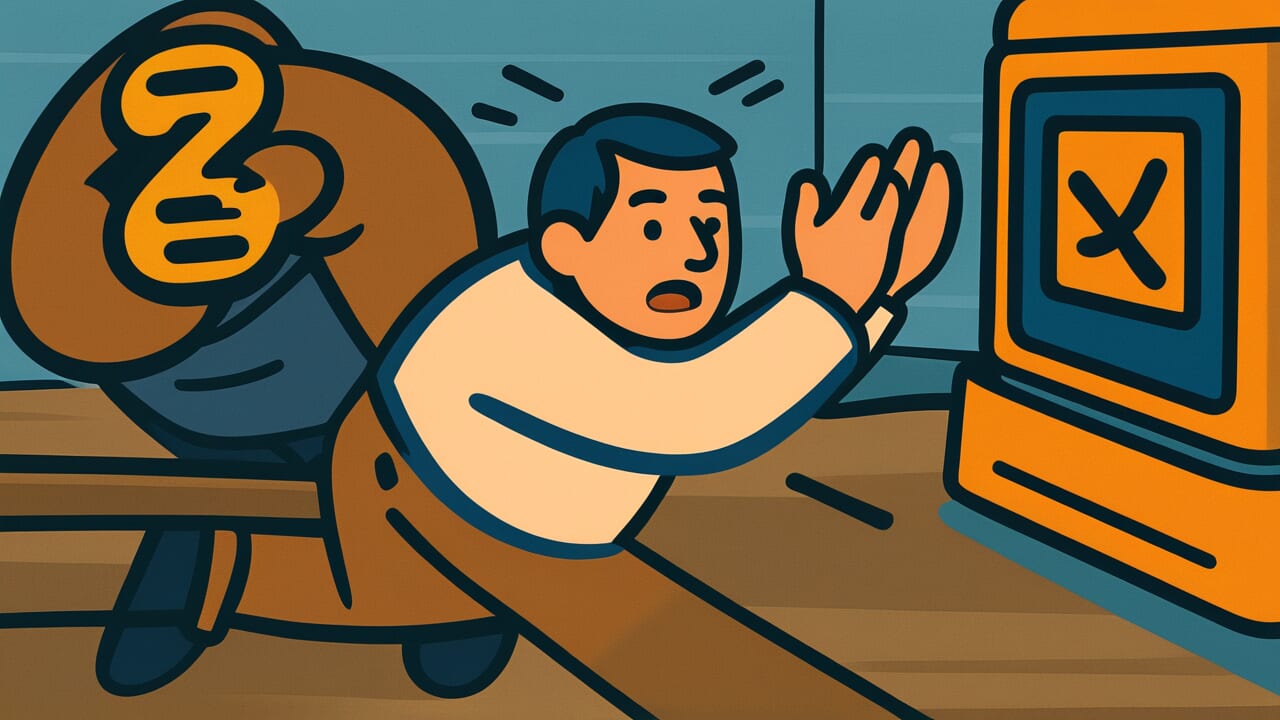How to Read “Do the difficult things first and take the rewards later”
Kataki wo saki ni shite uru wo nochi ni su
Meaning of “Do the difficult things first and take the rewards later”
This proverb describes a way of living where you willingly take on difficult work and challenging roles. You put off gaining profits or rewards until later.
In other words, you don’t choose easy jobs just to get rewards. Instead, you take on hardships first and receive results or compensation last.
This phrase often appears when discussing leadership and responsibility. It shows the ideal attitude for people who lead organizations or teams, or those who aspire to such positions.
Even today, the idea remains unchanged. A true leader doesn’t push hard work onto subordinates while taking it easy. Instead, they tackle difficulties head-on and share the results with their team.
People use this expression to convey an important message. Don’t get caught up in immediate gains. Focus instead on earning long-term trust and respect.
Origin and Etymology
This proverb likely comes from the phrase “先難後獲” in the ancient Chinese text Analects of Confucius. In the Yongye chapter, Confucius describes the ideal person to his disciple Zhonggong using this expression.
During Confucius’s time around the 5th century BCE, China experienced continuous social chaos. Many people chased immediate profits.
In this context, Confucius taught something different. A truly excellent person takes on difficult work first and puts rewards and honor last.
This wasn’t just about self-sacrifice. It showed the qualities and virtue of a leader.
Confucian thought came to Japan long ago. The warrior class especially studied the Analects widely. The four-character Chinese phrase “先難後獲” was read down into Japanese.
It became established as “Do the difficult things first and take the rewards later.” During the Edo period, education emphasized this phrase. It represented the mindset that leaders and people in responsible positions should have.
The structure of the phrase reveals something important. It expresses two virtues at once: the courage to face difficulties and the self-control to suppress personal greed.
Usage Examples
- In the new project, he embodied the spirit of “Do the difficult things first and take the rewards later” by volunteering for the basic research that nobody wanted to do
- A team leader should “Do the difficult things first and take the rewards later,” praising subordinates when successful and taking responsibility when things fail
Universal Wisdom
Humans instinctively want to choose the easy path and avoid hardship. We want to obtain profits and rewards as quickly and abundantly as possible. This is natural as a survival instinct.
However, this proverb has been passed down for thousands of years for a reason. It shows a truth: human society cannot function on instinct alone.
What would happen if everyone in an organization sought easy work and high rewards? Nobody would take on difficult tasks. People would fight over profits. Eventually, the organization would collapse.
That’s why we need people who take on difficulties first and put profits last. And here’s the paradox: such people ultimately gain the deepest trust and respect.
This phrase teaches us something beyond short-term calculations. It reveals the essence of human relationships.
People are moved more by those who don’t shy from self-sacrifice than by those who act calculatingly. When people see a leader face difficulties head-on, they naturally want to follow.
This is an unchanging response deeply carved into the human heart. Our ancestors understood something profound. True leadership doesn’t come from power or position. It comes from the attitude of “doing the difficult things first.”
When AI Hears This
The human brain has an interesting quirk when calculating future rewards. Consider 10,000 yen today versus 10,000 yen in one year. Same amount, but today’s feels more valuable. This is called temporal discounting.
Humans especially overvalue immediate rewards and sharply devalue slightly delayed ones. This is “hyperbolic discounting.” For example, you’d choose 100 yen today over 110 yen tomorrow.
But you’d choose 110 yen in 101 days over 100 yen in 100 days. The time interval is the same one day, yet the decision changes.
The behavior this proverb shows—”doing difficult things first”—is a strategy that goes against this instinct. In game theory, backward induction determines optimal actions at each stage by working backward from the goal.
Like a chess master choosing an opening move by thinking backward from a winning endgame, you can calculate that taking on difficulties now is necessary to obtain the final big reward.
What’s interesting is that postponing difficulties reduces your options over time. Neglected problems become more complex, and solving them costs exponentially more.
In other words, “postponing difficult things” is like making your future self take on debt with interest. Thinking with backward induction, early action is rational to minimize total difficulty.
This proverb sees through human cognitive bias. It puts a mathematically correct time strategy into words. That’s the wisdom here.
Lessons for Today
Modern society emphasizes efficiency and results. We value how easily and quickly we can produce outcomes. But this proverb reminds us of a different value system.
True trust is born through the process of overcoming difficulties together.
When you face a new project at work, try volunteering for the unglamorous tasks nobody wants. You might not get immediate recognition. But your attitude will definitely be noticed.
The same applies at school or home. By taking on troublesome roles instead of avoiding them, you demonstrate something beyond mere ability. You show the size of your character as a person.
What matters is not doing this calculatingly. If you take on difficulties expecting rewards, it’s ultimately the same as “taking the rewards first.”
Simply do what needs to be done now. That accumulation will build a treasure of trust around you before you realize it.
Precisely because we live in modern times, this ancient wisdom shines with fresh brilliance.



Comments